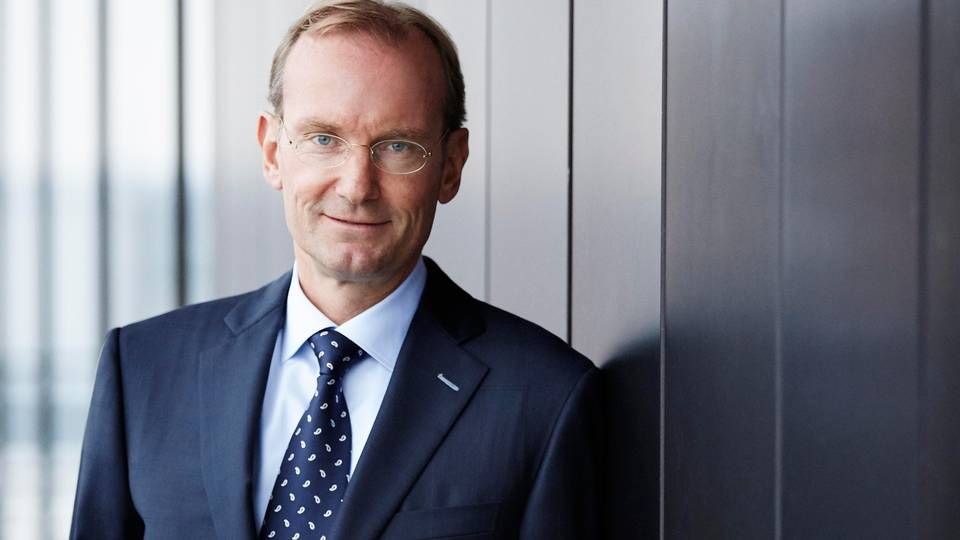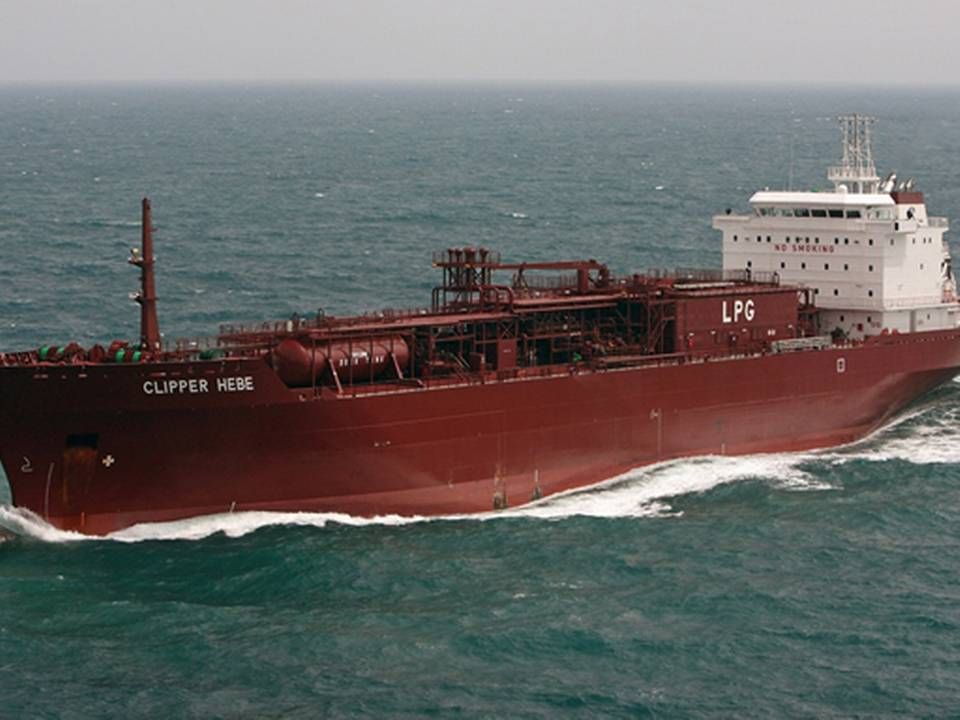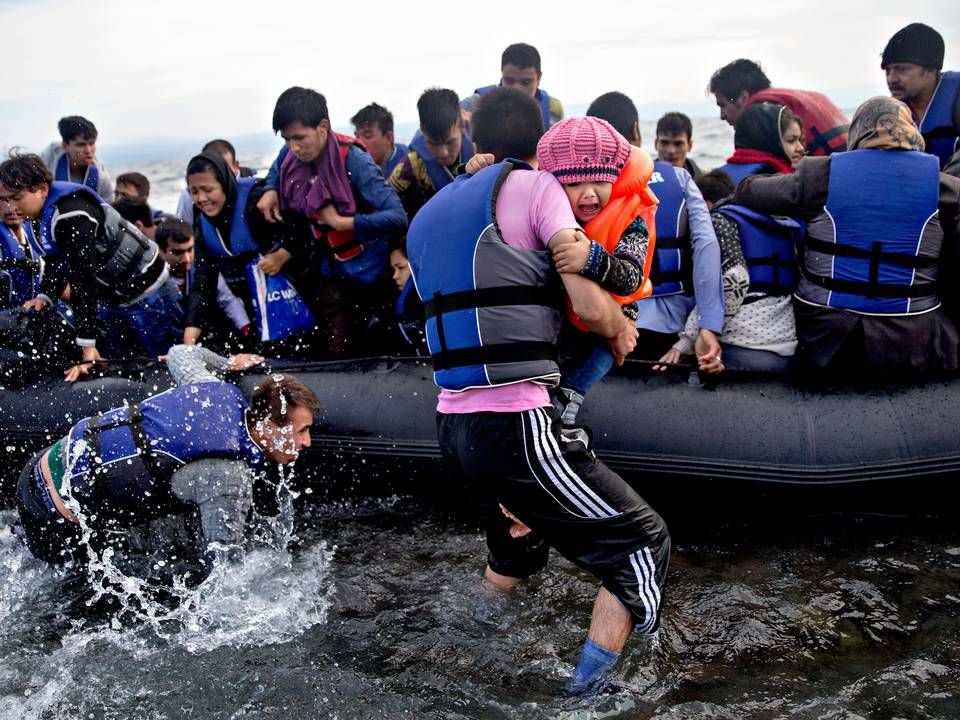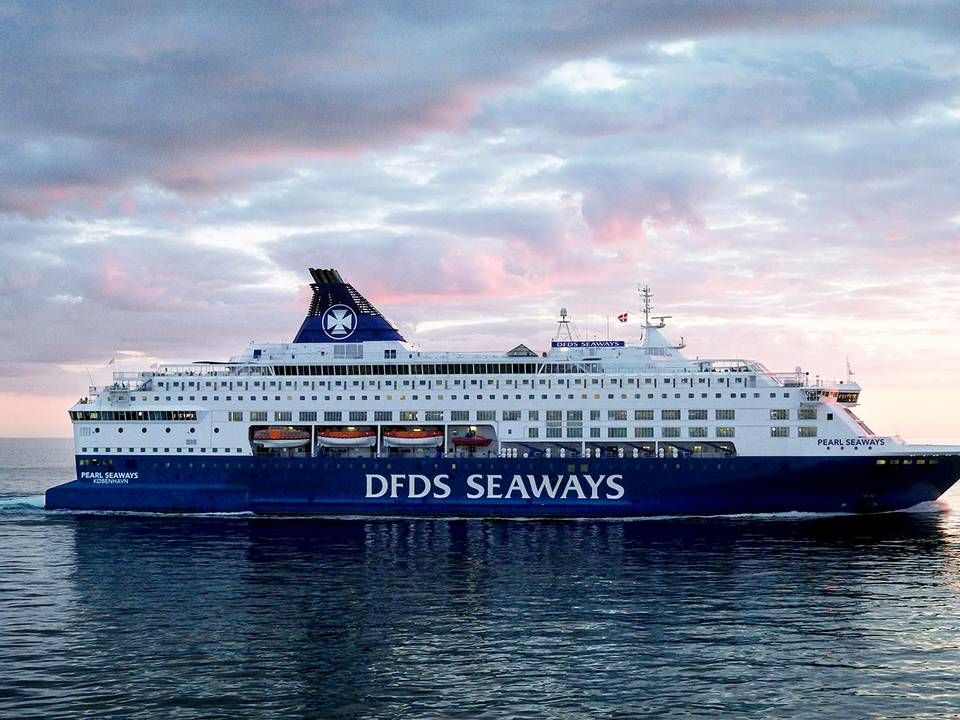DFDS CEO on migrants: This is a completely unsustainable situation

DFDS is currently stuck in limbo after a group of migrants sneaked on board the Ropax ferry Kaunas on July 27 en route between Ukraine and Turkey.
Neither Ukraine nor Turkey will accept the 12 migrants who have been on board the ferry for three weeks. The ship sails under the flag of Lithuania and is chartered to a Ukrainian company Ukraferry with a DFDS crew of 18 to 20 members, CEO Niels Smedegaard explains to ShippingWatch.
"This is a tragic situation with these migrants or refugees, but it's also an extremely difficult situation for our crew. Episodes have taken place – not violent ones, but dangerous ones – with these agitated people who discovered that they were not headed to the EU because no one would accept them and they do not want to return to Turkey. This has caused a very tense situation," he says, explaining that DFDS has hired unarmed guards.
"Now these people have some cabins and they are guarded, as there is both a crew and passengers on board this ship. This has lasted almost three weeks, it's not a sustainable situation."
When the ferry, which sails passengers, trucks, and railroad cars, was headed to from Turkey to Ukraine on July 27, the crew discovered six stowaways. Later, another six emerged from various trailers where they had been hiding to get on board.
None of the migrants have documentation and this is one of the issues. Turkey will not accept them, because DFDS cannot prove that they boarded the ship there, Smedegaard explains. The same is true of Ukraine.
Reached a deadlock
So far, the vessel is still operating and meanwhile DFDS is trying to reach resolution with authorities in Turkey, Ukraine, and Lithuania. However, there is nothing to indicate that progress is being made.
"So far there has been no success. We have apparently reached a deadlock. It's just another indirect consequence of some of the problems that Danish carriers and seafarers are subject to," Smedegaard says, referring to the many refugees that have tried to cross the Mediterranean for years and have been picked up by vessels at sea after their boats have wrecked.
"Fortunately, it has been the case so far that we have been able to sail to a port in Italy or Greece and help them get on land where there was a setup and some camps to handle them."
This is not the case with the ferry Kaunas and so DFDS has been forced to look into other options. The carrier is in contact with authorities about whether they will accept the group of migrants if DFDS pays for airfare or other transportation.
"But seeing as these people have no documentation with them, they have wound up in no man's land. Right now, it's hard to imagine what will happen," Smedegaard says, adding:
"We are working with authorities many places and have also contacted the European shipowner association and we're trying at the EU level. But the relationship between Turkey and the EU is not entirely unproblematic right now. There are several million refugees and many places are heavily impacted by this. Now, we're contacting Lithuania as well, as they have to take their share of the responsibility for a vessel operating under their flag. But the clock is ticking and our crew is in the middle of this."
Not the first stowaways
This is not the first time that DFDS has to deal with migrants. Stowaways have previously found their way on board trailers on the carrier's other services in the North Sea as well as between Ghent and Gothenburg or from Denmark to the UK. But the current situation is still different. Previously the carrier could let people off in the location where they boarded.
Smedegaard himself does not know how long the ferry between Turkey and Ukraine can keep sailing if a solution is not soon found.
"It's very difficult to predict how this will develop. We hope that someone can help find a solution with the pressure that has been put on authorities," he says.
"At some point, the crew might get enough of this and feel too unsafe, or somehow something will happen, and the ship will not be able to sail."
English Edit: Gretchen Deverell Pedersen
Crew interrogated about their effort in tragic shipwreck
Related articles
Crew interrogated about their effort in tragic shipwreck
For subscribers
EU agrees on new joint European Coast Guard
For subscribers
DFDS CEO: English Channel could be new growth driver
For subscribers



















